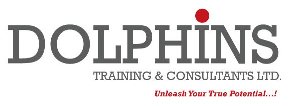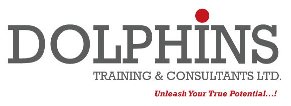
Could it be that our lives and careers are simply a reflection of our Words?
►Is the difference between a millionaire and a billionaire the words they know and use?
►Could the difference between a happy person and depressed person simply be the words they chanted to themselves?
Do you dread public speaking? Join the club. Along with death and spiders, it’s what people fear most. However, being an effective presenter is critical for anyone who is (or aspires to be) in a leadership position. In fact, certain presentations can be downright career defining.
Instead of leaving your speaking success to chance, take some cues from the pros.
1.Begin with the end in mind. Before you start working on your script or presentation, get clear on its purpose. What are you trying to accomplish? What impact do you want to have on your audience? Are you looking to inform? Inspire? Persuade? Knowing your ultimate purpose and desired outcome will help you stay focused through the preparation process.
2.Simplify your messages. You are where you are because of the depth and breadth of your expertise. Your natural inclination will be to impart lots of that knowledge onto your audience. Resist it! Otherwise, you’ll bore and overwhelm your listeners with details they’ll never retain. Focus on conveying a few powerful ideas that they’ll remember. Think of yourself as Master Distiller of Information – boil it down and go from there.
3.Avoid the perils of Powerpoint. It’s called “death by Powerpoint” for a reason. Those “eye charts” crammed with words in 8-point type are dreaded by audiences everywhere. Lose them! Your job is to hold the attention in the room. All eyes should be on you, not the screen. If you use slides, make them impactful and use them sparingly. They should be simple, compelling and graphically appealing. Also remember that when you’re reliant on slides, you run the risk of a technology problem and a presentation disaster. By reducing or eliminating slides, you minimize risk.
4.Connect with your audience. One mistake speakers often make is trying to prove they’re smart. Remember that you’re at the podium for a reason. Your credentials speak for themselves. When you stand in front of an audience, there is already a gap — you’re the expert, they’re not. By trying to impress your audience with your intellect, you create more distance and could come across as arrogant. Your job is to close the gap, not widen it. By being self-effacing, humorous and real, you become approachable and it’s easier to win over your audience. In turn, the more connected the audience feels to you, the more they’ll pay attention to what you have to say.
5.Tell personal stories. Storytelling puts an audience at ease, humanizes you as a speaker, and makes your messages more memorable. It is the most powerful tool in a speaker’s toolkit. To find your stories, you simply have to mine your own life experiences and pull out the gems. Audiences will remember your stories more easily than facts and figures, and they’re more likely to enjoy your presentation. Another benefit of using personal stories is that they’re easier to remember when you’re at the podium.
6.Prepare and practice. If you’re giving a high-stakes presentation, don’t leave anything to chance. “Off the Cuff” and “Winging It” are high-risk strategies and very few people can pull it off. Have a very clear roadmap of what you’re going to say, and rehearse. If you want to ad-lib a couple of stories, that’s fine, but be sure you know the key points so you don’t meander. Having your material down cold will enable you to have more fun with your audience and avoid the nervousness associated with being not quite ready.
7.Watch yourself. Few tools are as instructive as video playback. People can tell you that you wander the stage, over-gesture, slouch, have an incessantly grim facial expression or use a repetitive speech pattern, but once you see it on tape, it will be much easier for you to grasp and change. If you prefer to rehearse in private, use your iPad or hand-held device’s video feature. Stand in front of it and let it roll!
8.Avoid sameness. It is said that sameness is the enemy of speaking. If you follow the same cadence, vocal rhythm, pitch, tone and gesture patterns throughout your presentation, your audience will tune you out. Think about what puts a baby to sleep. You need to change it up; keep enough variety in your delivery so it holds the audience’s interest.
9.Message your body. Remember that 90+% of communication is nonverbal. Your audience will read your facial expressions, the tone of your voice, the way you use your hands, how you stand and move. A warm, easy smile and calm body immediately tell the audience that you’re comfortable and confident. And when the speaker is comfortable, the audience is, too. The opposite is also true.
10.Let your passion show. There is no substitute for authentic passion at the podium. When you believe in your message and have energy around your topic, it will translate to your audience. Above all else, be yourself up there!
11.De-risk the logistics. Take some extra steps beforehand to ensure a smooth experience.
a) If you’re vertically challenged, make sure there’s a step riser behind the podium so you’re not struggling to be seen or to reach the microphone.
b) If you’re being introduced by someone else, send them your own brief intro in advance with phonetic spelling of any complicated words (ethnic last names, etc).
c) If you’ve been given a specific timeslot for your presentation, make sure you know who’s before you and who follows you, and clarify when you will get “wired for sound.” And be sure to speak within the time parameters you’ve been given.
d) If you’re using slides, bring a second set on a thumb drive in case there’s an issue with the original file, and try to get into the room ahead of time to get comfortable with the clicker, pointer and other gadgets.
Few more things;
I would also add that every speaker should accept that they will make minor mistakes. That’s why de-risking ahead of time is a great idea. Minor slip ups are easy to recover from but big ones can derail your entire presentation.
Eye contact to your audience is amazing not forgeting the power of smile.
Simplification is so important! And striking the right balance between substance and simplicity isn’t always easy but that’s what great public speakers do so well
The goal is that once you step on stage, everything goes like clockwork. Of course, having a coach to help you master these techniques can pay dividends down the road. By taking steps to elevate your presentation game, you’ll begin to overcome the all-too-common fear of public speaking while positioning yourself to be a more effective, more successful leader.
Join the next Excutive high Impact training here
Good luck..
Compiled by,
Angela Ngethe
Clients Relations,Dolphins Training & Consultants ltd
angelan@dolphinsgroup.co.ke
Dolphins Group


.jpg)
.jpg)
.jpg)
.jpg)

.gif)


.jpg)
.jpg)
.jpg)


.jpg)